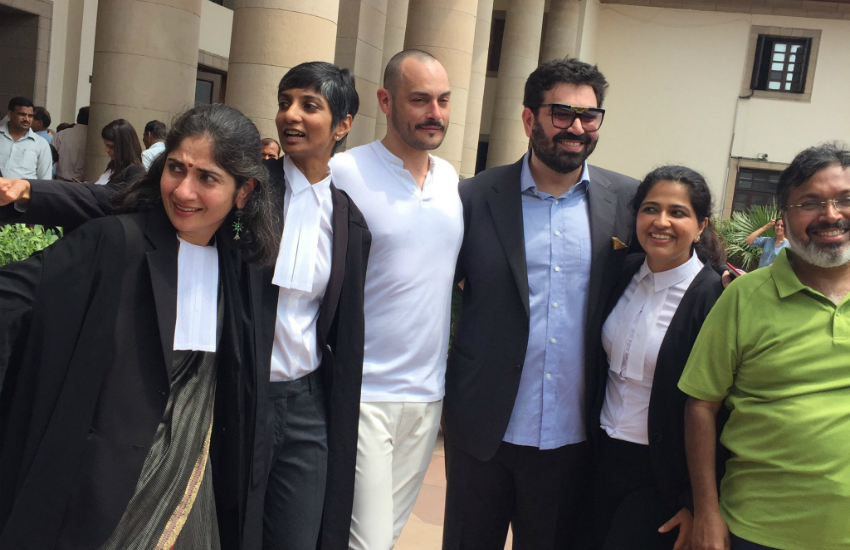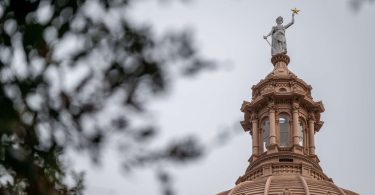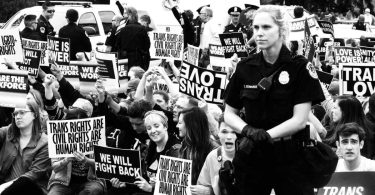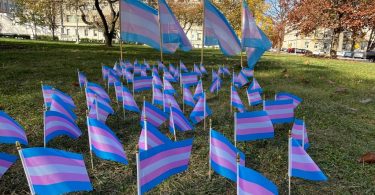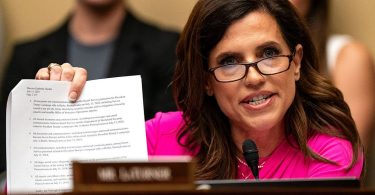Lawyers and petitioners outside India’s Supreme Court after it ruled to decriminalize gay sex (Photo: Twitter)
The Supreme Court of India kept the country’s estimated LGBTI population of 78 million waiting for its decision on decriminalizing gay sex. The ruling was announced 45 minutes later than expected.
But some campaigners had been pushing to abolish a colonial-era law since the 1990s. Section 377 of the Indian Penal Code punishes gay sex with up to 10 years in prison.
Judges ruling on the high profile LGBTI rights said on Thursday (6 September) it was unconstitutional. They also said it violated the right to privacy.
The court ruled that: ‘Sexual orientation of an individual is natural and discrimination on the basis of sexual orientation is a violation of Freedom of Expression’.
Section 377
Introduced by the British in 1861, Section 377 of the Indian Penal Code outlawed ‘carnal intercourse against the order of nature with any man, woman or animal’.
India’s Supreme Court on Thursday (5 September) decided to abolish parts of the law.
In 2009, the High Court of Delhi decriminalized gay sex. But, in 2013, two members of the Supreme Court of India overturned that judgment.
In early 2017, the Supreme Court agreed to consider petitions against Section 377, particularly in light of new privacy legislation.
A five-member panel led by Chief Justice Dipak Misra was set up and they heard the case in July this year.
With the Constitution in our hearts, we go to our Court, to seek to remove a colonial stain on our collective national conscience. Section 377 your time has come. See you in Court on Tuesday. #section377 @chefritudalmia #iitiansagainst377 @arundhatikatju @barandbench
— Menaka Guruswamy (@MenakaGuruswamy) July 8, 2018
How the day played out
On Thursday, the five member panel voted unanimously to ‘read down’ Section 377. They ruled elements that criminalized sex acts between consenting adults violated the constitution.
But, Section 377 still exists to criminalize non-consensual acts, including against minors and bestiality.
Significantly, the court ruled that: ‘Sexual orientation of an individual is natural and discrimination on the basis of sexual orientation is a violation of Freedom of Expression’.
‘We have to vanquish prejudice, embrace inclusion, and ensure equal rights,’ said Justice Misra in his judgment.
This means Thursday’s judgement not only decriminalizes gay sex but enshrines LGBTI equality.
‘The court is very clear the LGBT community is protected by equality, dignity, non-discrimination, freedom of expression, life and liberty’ Supreme Court lawyer Menaka Guruswamy said outside court on Thursday.
‘The court is very clear it is the full protection of the constitution’, she said.
Akhilesh Godi, a data scientist and petitioner of the case, welcomed the ruling.
He welcomed Justice Nariman’s comments. Nariman said the government should train police in LGBTI sensitization and take measures to make sure broadcasters reduce stigma.
He welcomed Justice DY Chandrachud’s comments that ‘decriminalizing is just the first step’.
India’s first step
LGBTI Indians danced in the street in celebration.
The ruling Bharatiya Janata Party said it would support the decision. But at least one party member criticized the ruling.
‘This verdict could give rise to other issues such as an increase in the number of HIV cases’, member of parliament Subramanian Swamy told CNN-News18.
India’s gay prince Manvendra Singh Gohil warned: ‘Even though legally we may be free, we are not yet free socially’.
‘We will have to do a lot of effort so that society also accepts us’.
International rights groups and the United Nations welcomed the ruling.
‘The UN in India sincerely hopes that the court’s ruling will be the first step towards guaranteeing the full range of fundamental rights to LGBTI persons’, a statement said.
Asmita Basu of Amnesty International India said: ‘The judgment closes the door on a dark chapter of Indian history’.
Basu also said it was a milestone in the three decade old struggle by the LGBTI community and their allies.

